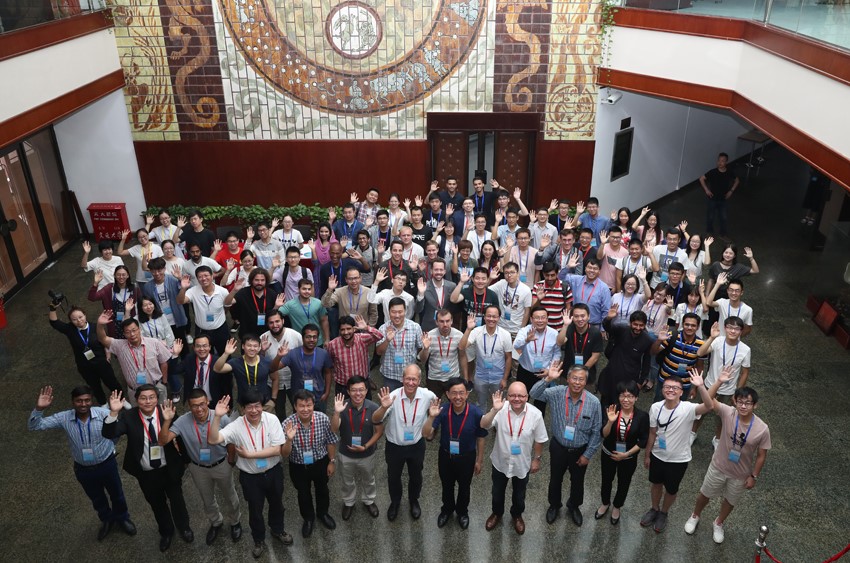The 2nd Sino-German Symposium on Electronic and Memory Materials has been successfully held in Xi’an, China from Sep 4-8, 2018. The official website is /xjtu/mu_mse-en/sgmat/ The symposium was fully sponsored by the Chinesisch-Deutsches Zentrum für Wissenschaftsförderung (grant number: GZ1478), and was organized by Prof. Wei Zhang from School of Materials Science and Engineering, Xi’an Jiaotong University and Prof. Matthias Wuttig from Physics Department, RWTH Aachen. The symposium received essential support from Prof. Riccardo Mazzarello from RWTH Aachen, Prof. Chun-Lin Jia and Prof. Tai Min from Xi’an Jiaotong University. Mr. Guang Xi, the Vice President of Xi'an Jiaotong University, met the German delegation on Sept. 4th, and conferred Prof. Wuttig an honorary professorship of Xi’an Jiaotong University. During the meeting, the current status of the bilateral cooperation and future plans were discussed in detail. The German delegation team also visited the laboratories of Schools of Materials Science and Engineering, Schools of Mechanical Engineering and School of Natural Science.

During Sep 5-7, 19 scientists from China, 13 scientists from Germany and 1 researcher from a third country have delivered 33 excellent presentations. All of these speakers are leading experts in the field of electronic and memory materials coming from 20 renowned universities and research institutes, including Xi’an Jiaotong University, Tsinghua University, Beihang University, Nanjing University, Fudan University, Shenzhen University, Sun Yat-Sen University, Huazhong University of Science and Technology, Jilin University, Institute of Physics (Chinese Academic of Sciences), Institute of Microelectronics (Chinese Academic of Sciences) and Shanghai Institute of Microsystem and Information Technology (Chinese Academy of Sciences), RWTH Aachen, Forschungszentrum Jülich, University of Hamburg, University of Münster, University of Cambridge, Paul-Drude-Institute for Solid State Electronics (Berlin), Leibniz Institute for Solid state and Materials Research (Dresden) and University of Cambridge (third country). The head of international office of Xi’an Jiaotong University Mr. Changzhong He and the vice dean of School of Materials Science and Engineering Prof. Fei Ma gave opening remark speeches. In addition, nearly 120 faculty members, research staffs and students attended the symposium with a total number of participants over 150. The symposium focused on the fundamentals of phase-change materials, resistive switching oxides, spintronic materials, 2D materials, etc. and their applications and development on data storage, memory devices, brain-inspired data processing and so on. The discussions covered many core accepts, including experimental measurements, theoretical computations, device design and commercialization.

On Sep. 8th, part of the delegation team visited the Center for Advancing Materials Performance from the Nanoscale, the State Key Laboratory for Mechanical Behavior of materials and Jia’s Research Lab on atomic imaging of materials. The symposium did not only enhance the established cooperation, but also initialized some new Sino-German partnerships. All the participants agreed that this symposium was very successful and anticipate a new level of Sino-German cooperation on electronic and memory materials and look forward to the follow-up Sino-German symposium. At last, the symposium organizers greatly acknowledge once again the great help and support from the Chinesisch-Deutsche Zentrum für Wissenschaftsförderung, School of Materials Science and Engineering and CAMP-Nano of Xi’an Jiaotong University, SFB-917 “Nanoswitches” and JARA-FIT of RWTH Aachen.


